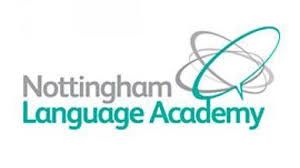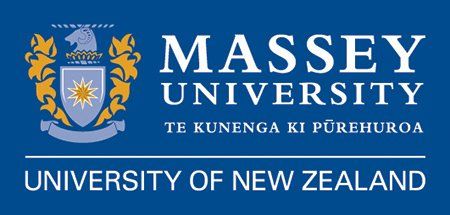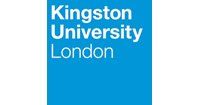
Coaching for Leadership Development
Course ID: 2511170101065ESH
Course Dates : 17/11/25 Course Duration : 5 Studying Day/s Course Location: London, UK
Language: Bilingual
Course Category: Professional and CPD Training Programs
Course Subcategories: Leadership and Management Excellence
Course Certified By: ESHub CPD & LondonUni - Executive Management Training
* Professional Training and CPD Programs
Leading to:
Executive Diploma Certificate
Leading to:
Executive Mini Masters Certificate
Leading to
Executive Masters Certificate
Certification Will Be Issued From :
From London, United Kingdom
Course Fees: £5,120.30
Vat Not Included in the price. VAT may vary depending on the country where the course or workshop is held.
Click to Pay
Date has passed please contact us Sales@e-s-hub.com
Course Information
Introduction
Leadership is a cornerstone of organizational success, yet the evolving demands of the modern workplace have transformed its definition. No longer confined to positional authority, leadership now encompasses emotional intelligence, adaptability, and the ability to inspire others. These qualities are cultivated through intentional development strategies, with coaching emerging as one of the most impactful tools for nurturing leadership potential. The field of coaching has gained significant traction in recent years, supported by frameworks such as Daniel Goleman’s Emotional Intelligence model and John Whitmore’s GROW model, which emphasize self-awareness, goal-setting, and actionable outcomes. This course addresses the growing need for structured leadership coaching within organizations striving to remain competitive in a dynamic global market.
One of the primary challenges organizations face is bridging the gap between raw managerial talent and effective leadership. Many professionals excel in technical expertise but lack the interpersonal skills required to lead teams effectively. For instance, a study conducted by Gallup revealed that only 21% of employees strongly agree their performance is managed in a way that motivates them to do outstanding work. This statistic underscores the critical role of coaching in fostering environments where leaders can thrive. By equipping participants with evidence-based coaching techniques, this course aims to address these gaps and empower individuals to unlock their leadership potential.
The benefits of mastering coaching for leadership development extend beyond individual growth. Organizations that invest in leadership coaching often experience improved employee engagement, higher retention rates, and enhanced productivity. Consider the case of Google’s “Project Oxygen,” which identified key behaviors of effective managers through extensive research. Among these behaviors were strong communication skills, the ability to coach team members, and fostering an inclusive environment—qualities that align directly with the competencies developed in this course. By embedding coaching practices into leadership development programs, organizations can create a culture of continuous improvement and innovation.
Theoretical foundations further validate the importance of coaching in leadership. Transformational leadership theory, pioneered by James MacGregor Burns and later expanded by Bernard Bass, highlights the significance of inspiring and motivating others to achieve shared goals. Coaching serves as a practical mechanism for developing transformational leaders who can articulate vision, build trust, and drive change. Similarly, Appreciative Inquiry, a strengths-based approach to organizational development, complements coaching methodologies by focusing on positive attributes and future possibilities rather than deficits. Together, these theories provide a robust framework for understanding how coaching enhances leadership capabilities.
Real-world examples illustrate the transformative power of coaching in leadership roles. Take Mary Barra, CEO of General Motors, whose leadership style emphasizes empathy, collaboration, and accountability—traits honed through mentorship and coaching relationships. Her tenure at GM demonstrates how coaching principles can guide decision-making during crises, such as navigating supply chain disruptions or addressing cultural challenges within an organization. Such stories reinforce the notion that leadership is not innate but can be developed through deliberate practice and support systems like coaching.
This course positions itself as a catalyst for professional and organizational growth by combining theoretical insights with practical applications. Participants will explore cutting-edge coaching techniques, engage in interactive exercises, and develop personalized action plans tailored to their unique contexts. Whether you are an aspiring leader seeking to refine your skills or an experienced executive aiming to enhance your impact, this program offers invaluable tools to elevate your leadership journey. By the end of the course, participants will emerge equipped to foster a culture of excellence, resilience, and sustained success.
Objectives
By attending this course, participants will be able to:
Analyze core leadership competencies and identify areas for personal and professional growth.
Apply established coaching models (e.g., GROW, CLEAR) to facilitate meaningful conversations and goal achievement.
Evaluate the effectiveness of various coaching interventions using measurable outcomes and feedback mechanisms.
Design customized coaching plans aligned with organizational objectives and individual development needs.
Implement strategies to cultivate emotional intelligence and foster inclusive leadership practices.
Synthesize theoretical frameworks with real-world scenarios to address complex leadership challenges.
Reflect critically on ethical considerations in coaching and uphold professional standards throughout engagements.
Who Should Attend?
This course is ideal for:
HR managers and talent development specialists tasked with designing leadership programs.
Team leaders and mid-level managers looking to enhance their coaching and mentoring abilities.
Executive coaches and consultants seeking to expand their toolkit and deepen their expertise.
Educators and trainers interested in integrating coaching principles into leadership curricula.
These groups will find value in the course due to its focus on equipping participants with actionable strategies to drive leadership excellence. While prior exposure to coaching or leadership concepts is beneficial, the course is structured to accommodate both beginners and intermediate learners, ensuring accessibility without compromising depth. Advanced practitioners may also benefit from the opportunity to refine their skills and stay abreast of emerging trends.
Training Method
• Pre-assessment
• Live group instruction
• Use of real-world examples, case studies and exercises
• Interactive participation and discussion
• Power point presentation, LCD and flip chart
• Group activities and tests
• Each participant receives a 7” Tablet containing a copy of the presentation, slides and handouts
• Post-assessment
Program Support
This program is supported by:
* Interactive discussions
* Role-play
* Case studies and highlight the techniques available to the participants.
Daily Agenda
Daily Schedule (Monday to Friday)
- 09:00 AM – 10:30 AM Technical Session 1
- 10:30 AM – 12:00 PM Technical Session 2
- 12:00 PM – 01:00 PM Technical Session 3
- 01:00 PM – 02:00 PM Lunch Break (If Applicable)
- Participants are expected to engage in guided self-study, reading, or personal reflection on the day’s content. This contributes toward the CPD accreditation and deepens conceptual understanding.
- 02:00 PM – 04:00 PM Self-Study & Reflection
Please Note:
- All training sessions are conducted from Monday to Friday, following the standard working week observed in the United Kingdom and European Union. Saturday and Sunday are official weekends and are not counted as part of the course duration.
- Coffee and refreshments are available on a floating basis throughout the morning. Participants may help themselves at their convenience to ensure an uninterrupted learning experience Provided if applicable and subject to course delivery arrangements.
- Lunch Provided if applicable and subject to course delivery arrangements.
Course Outlines
Foundations of Coaching for Leadership Development
Introduction to leadership coaching: Definitions, scope, and relevance.
Overview of key coaching models (GROW, CLEAR, OSKAR).
Understanding leadership competencies and their alignment with coaching goals.
Ethical guidelines and professional standards in coaching.
Day 2:
Building Emotional Intelligence Through Coaching
Exploring the components of emotional intelligence (self-awareness, self-regulation, empathy).
Techniques for enhancing emotional intelligence in leaders.
Role-playing exercises to practice active listening and empathy-building.
Case studies highlighting successful EI-focused coaching initiatives.
Day 3:
Designing Effective Coaching Plans
Assessing individual and organizational needs through diagnostic tools.
Setting SMART goals within coaching frameworks.
Creating tailored coaching plans for diverse leadership styles.
Measuring progress and adjusting strategies based on feedback.
Day 4:
Addressing Complex Leadership Challenges
Navigating conflict resolution and difficult conversations through coaching.
Strategies for fostering inclusivity and diversity in leadership teams.
Crisis management and decision-making under pressure.
Group activity: Solving simulated leadership dilemmas using coaching techniques.
Day 5:
Sustaining Leadership Growth and Impact
Embedding coaching practices into organizational culture.
Leveraging technology and digital tools for remote coaching.
Developing long-term sustainability plans for leadership development.
Final reflections and presentation of personalized action plans.



















































